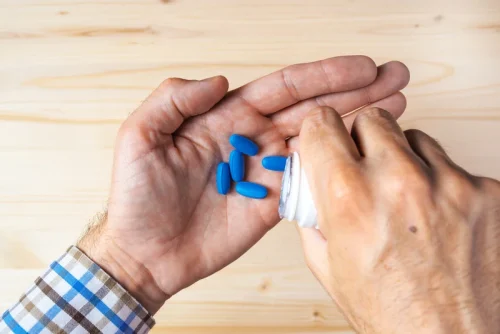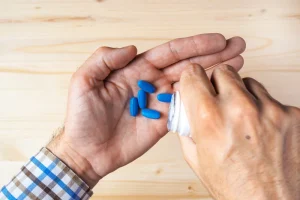
For example, oxytocin decreases stress-induced HPA axis activation and behavioral (anxiety) responses (Neumann et al., 2000; Windle et al., 1997). Peters et al 2013, carried out the chronic subordinate colony (CSC) housing study to evaluate social stress paradigms which is considered as the pre-clinically validated psychosocial stress paradigm relevant to human psychiatric disorders. CSC stressed male mice when given increasing doses (0, 2, 4, 6 and 8%) of alcohol for 14 days showed a significant increase in alcohol consumption.

Types of antidepressants
Antidepressants can help even levels of these chemicals and can help relieve symptoms of depression. Almost 30 percent of Americans will experience alcohol use disorder at some point in their lifetimes. It’s very important to address both alcohol misuse and depression simultaneously when looking into treatment options, as these conditions are closely intertwined and can exacerbate each other, Kennedy explains.

How Alcohol Affects Your Brain
These drugs were also approved by different regulatory agencies in many countries and have been used to treat AUDs for the past few decades with variable success rates. Improved medications for the treatment of binge, chronic alcohol drinking and alcohol related socio-medical problems are greatly needed. Reviews of the current literature show that many drugs and medications such as anticonvulsants, antipsychotic and antidepressants are under preclinical and clinical trials for the treatment of AUDs. Previously we have reviewed on the status of FDA approved and some other medications for the treatment of AUDs (Heilig & Egli, 2006).
- Understanding what depression is, how it interacts with substance use, and how to find dual diagnosis treatment can help you begin your journey to recovery.
- C57BL/6J mice, when injected with 400 nmol of D-Lys3-Growth Hormone Releasing Peptide-6 (D-Lys3-GHRP-6, a selective ghrelin receptor antagonist) also called as DLS, showed reduced preference to alcohol with decreased alcohol intake in comparison to saline-treated control mice.
- There is a strong link between alcohol use and depression, a mental health condition that includes feelings of hopelessness, emptiness, fatigue, loss of interest, and more.
- Treatment often includes an integrated approach to simultaneously address both alcohol use disorder and depression.
- On the other hand, saccharin preference and ethanol-induced CPP were not altered, however, ethanol clearance was increased.
- In addition, memantine did not affect alcohol-induced performance impairment, physiological changes or pharmacokinetics, however it increased dissociative effects, confusion, subjective reports of dissociation and impaired motor coordination (Bisaga & Evans, 2004).
Medications for Alcohol Use Disorders: An Overview
In people with a substance use disorder, less than 1% with depressive disorders had substance-induced symptoms. 2019 research suggests that depressive disorders are more common in people with alcohol dependence than in those who engage in alcohol misuse, like binge drinking. Individuals with mental health conditions may be more likely to use alcohol as a treatment. Several studies suggest that military veterans are more likely to experience depression, post-traumatic stress disorder (PTSD), and misuse alcohol. Major depressive disorder involves persistent and prolonged symptoms, but depression, in general, takes on many different forms. Depressive symptoms can result from life stressors, mental health conditions, medical conditions, and other factors.

- There was no effect of ARI or interaction on a Barratt Impulsiveness Scale (BIS-11) score during the natural drinking period in both the groups, however, it was effective on bar-lab drinking.
- Analysis of the publications and clinical guides was undertaken by all the authors.
- In an open-label controlled study, thirty patients received 75 mg of topiramate per day in addition to psychotherapeutic treatment, in comparison to the control group.
Sleep deprivation is a significant contributor to both anxiety and depression, which often leads people to wonder, “Does alcohol cause depression and anxiety? The lack of restful sleep, combined with alcohol’s depressive effects on the brain, contributes to feelings of sadness, irritability, and fatigue. Scientific institutions and associations web pages consulted for clinical guidelines on treatment of comorbid AnxD–alcohol-use disorders patients.
- The demand problem has been noted already for patients, but it will also be problematic for third-party reports if patients communicate their own unblinding at interview.
- The link between poor heart health and depression is well-established; people with cardiovascular issues are more likely to suffer from depression, leading to a detrimental cycle between alcohol and depression.
- Schematic diagram of the FDA-approved drugs and other medications, such as anticonvulsants and some off-label medications, that are used or repurposed for the treatment of AUDs.

These reports with mixed outcome results suggest that more trials are needed to either verify does drinking make your depression worse or discard a possible clinical efficacy of baclofen for alcohol dependence (Reynaud et al., 2017). Previously it has been shown that blockade of α-1 adrenergic receptors suppresses excessive alcohol consumption after acute withdrawal in ethanol-dependent rats. In ethanol-dependent animals, prazosin (1.5 and 2.0 mg/kg) was effective in suppressing alcohol consumption, suggesting the involvement of noradrenergic receptors in the excessive alcohol drinking during acute withdrawal in ethanol-dependent rats (Walker et al., 2008). In nondependent rats, only 2.0 mg/kg dose was effective and at 0.25 mg/kg doze prazosin mediates anxiolytic effect on ethanol self-administration in nondependent rats. In general, stress-induced anxiety is a major risk factor for reinstatement to alcohol drinking.
- Antidepressants can help even levels of these chemicals and can help relieve symptoms of depression.
- Memantine was also ineffective in reducing relapse after protracted abstinence and may be used as a replacement therapy drug, but not as relapse-preventing drug (Alaux-Cantin et al., 2015).
- Most residential treatment programs include individual and group therapy, support groups, educational lectures, family involvement, and activity therapy.
- However, patients receiving SSRIs also likely had an increased risk of experiencing an adverse event.
- Most antidepressants require taking a consistent, daily dose to maintain a constant level in your system and work as intended.
